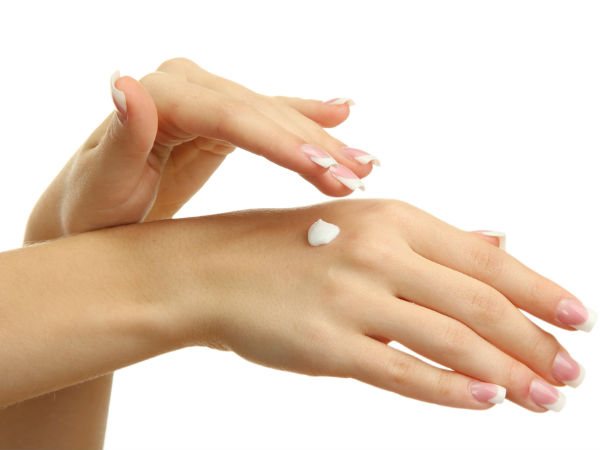As the weather goes through changes, so does the human body. When temperatures drop, many people report experiencing an unexpected and unpleasant change in their skin. It is common to develop itchy or dry skin during the frigid winter months. The hallmark symptoms of this condition include chapped lips, cracked hands, and tightness. While dry skin can be uncomfortable and bothersome, there are numerous steps to take that can alleviate and prevent uncomfortable, dull winter skin.
Causes For Seasonal Dry Skin
When the humidity level drops, as it does in the winter, the skin’s hydration level also depletes and evaporates at an accelerated rate. As a result, skin feels tight, dry, and can appear flaky. In addition to the changing weather, skin can also be affected by home heating systems. Indoor heating dries out the air, thereby resulting in dry skin. Furthermore, sudden temperature changes from freezing outdoor temperatures to toasty indoor heating can take its toll on the skin’s natural complexion. An individual’s wardrobe during the winter months can also yield an adverse effect on the skin. For instance, harsh fabrics such as wool can further irritate the skin causing itching and flaking.
Alleviate Dry Skin By Moisturizing and Hydrating
Rich creams and lotions are often sought out during the cold months because they effectively lock in skin’s moisture. A variety of products on the market can soothe every skin type whether a person has sensitive, oily, or a combination skin. Dermatologists recommend moisturizing directly after a shower or bath; this locks in the much-needed water. Be sure to choose a formula that contains natural, nourishing ingredients while avoiding petroleum-based ingredients, as these substances can actually exacerbate skin dryness. Meanwhile, humidifiers can help to combat the dryness that indoor heating systems cause. Humidifiers work to release moisture back into the air, which can help restore hydration, rejuvenating skin and soothing any harsh dryness.
Luckily, water is the best way to hydrate skin from the inside out. In the winter, dehydration is much more prevalent, especially since people tend to drink caffeinated hot beverages to warm them up. Drinking the recommended 64 oz of water per day will not only reduce skin dryness, but also keep skin radiant and flawless during winter.
Opting For A Healthy Diet Prevents Seasonal Dry Skin
During the colder winter months, many people turn to comfort foods to satisfy their hunger. But one’s health is depended on food consumed. And so healthy changes incorporated into a diet directly impact skin health, while other foods can adversely affect skin health. For instance, foods with high levels of refined carbohydrates and sugars tend to spike hormones that lead to oil production. As a result, the skin becomes irritated and leads to acne breakouts. While comfort food may be mouthwatering and savory, dermatologists recommend limiting or avoiding these dishes during the winter seasons. In addition, increasing intake of omega-3s can help sustain natural fats in the body. Eating omega-rich foods like olive oil, avocados, flax seeds, and sardines can help give skin a beautiful winter glow.
The Right Cleansing Regimen Can Improve Skin Dryness
 Dermatologists also recommend removing dead skin cells through weekly exfoliation. A buildup of dead skin cells will prevent moisture from entering the dermis, which engenders dry and chapped skin in the winter. To combat this change, try switching to an exfoliating body wash during the winter months to ensure skin stays healthy and fresh.
Dermatologists also recommend removing dead skin cells through weekly exfoliation. A buildup of dead skin cells will prevent moisture from entering the dermis, which engenders dry and chapped skin in the winter. To combat this change, try switching to an exfoliating body wash during the winter months to ensure skin stays healthy and fresh.
Everyone enjoys a hot, steamy shower on a cold day. But while a hot shower can be enticing when the temperature is below 30, piping hot temperatures can adversely dry out skin. Instead, opt for a lukewarm shower. In addition, try to limit the duration showering to approximately 10 minutes. Doing so will prevent the water from stripping the body of oils that are crucial to moisture and skin health. Furthermore, changing soaps is an easy way to keep hands from drying out.
Protecting Skin This Winter
During the cold months, it is important to ensure that skin is well protected from the harsh elements. Wearing protective clothing like gloves and scarves can offer aid by shielding exposed skin. More importantly, don’t forget to apply sunscreen. The drop in temperature fools people into believing the sun is less hard during winter. This misconception creates a false sense of security, thereby resulting in accidental sunburn during December, January, and even February. Regardless of the season, the same rules apply, meaning the sun’s UV rays are still present and just as harmful. Individuals can cover exposed skin with a light layer of sunscreen to ensure protection.
Top Skin Care Providers
For individuals experiencing dry, itchy, and flay skin throughout winter visit a dermatologist or a skin expert near you and learn how to improve skin health and reduce dryness.



